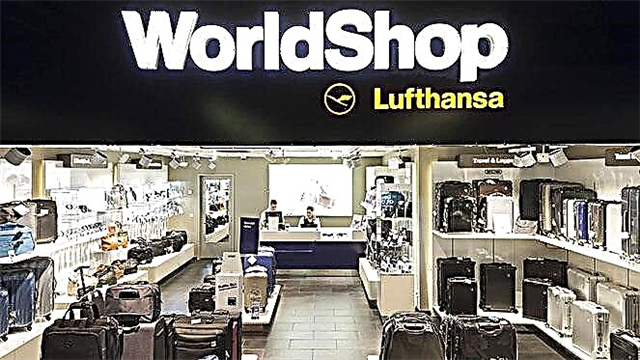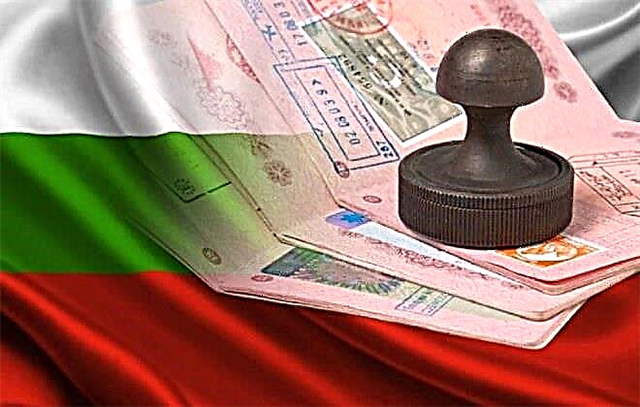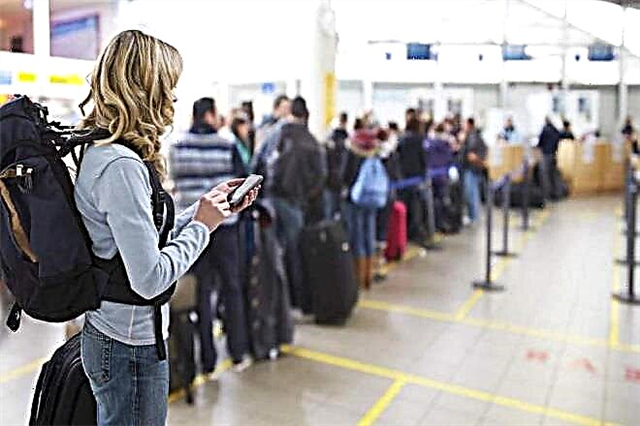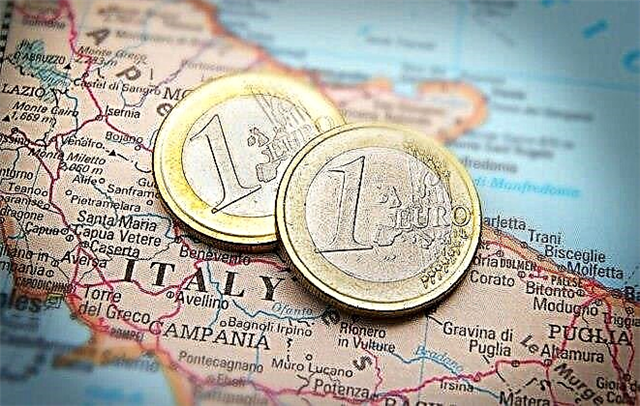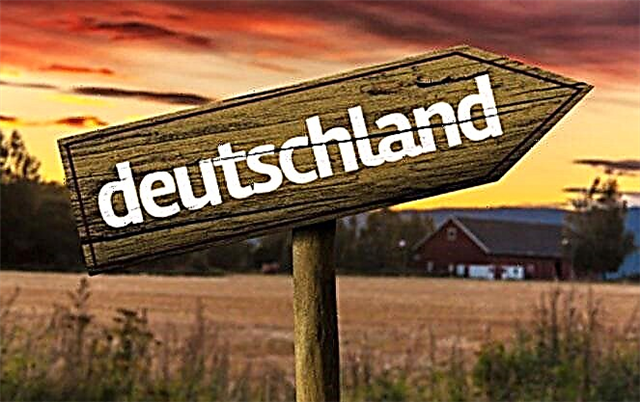If you are going to change your place of residence to another country, you need to be well versed in the cost of basic goods and services that you will have to use in the new conditions. Among the European powers, the German state cannot be called inexpensive. And while food costs will not be too different from those to which residents of other territories are accustomed, the prices in Germany for everything else in 2021 could significantly affect the monthly budget.

What items of expenditure include the budget of the average German
Germany is one of the most developed, stable and prosperous states in the European part of the continent. This is evidenced by three characteristics of German society, which can be described by the word "tall":
- standard of living;
- wage;
- social security of citizens.
In numerical terms, these indicators are expressed differently in different regions of the country.
For example, life in Hamburg will be more expensive than in Dresden, and prices for basic goods in rural areas will be lower than in cities.
The average salary in the country is 2500-3000 euros per month. The salary of demanded specialists can exceed 10 thousand euros, and this does not apply only to residents. Foreigners with a certain profession and work experience can also apply for such income. Unskilled workers are entitled to a salary of 1700-1800 euros.
The average family's expenses for utilities, food, clothing, transportation and leisure can reach € 1500-2000 every month. The rest of the Germans spend on vacation and travel.
The living wage looks like this:
- € 331 per head of household;
- 270 euros for each other family member;
- children and students up to 27 years old receive 154 euros a month;
- dismissed are entitled to a payment of 60% of the last salary;
- additional benefits and social guarantees, in addition to basic payments, amount to 331 euros.
Residents of the country can receive free medical and relatively inexpensive educational services. Almost every family has a car, although within cities, Germans prefer to travel by public transport or by bicycle.
The high prices in Germany are due to the high level of wages and living in general. Most of the income of the average German is spent on housing, utilities and medical care. Next comes the grocery package, travel, payment for mobile communications and the Internet. If the family has children, some part of the earnings has to be set aside for their education. With an average salary of 2500-3000 euros, Germans allow themselves to travel the world a couple of times a year.
Food basket
In Germany, it is customary to buy products for a long time, purchasing them in whole packages, since they are cheaper this way.
Germans prefer hypermarkets, of which there are quite a few in the country, because, unlike other European countries, prices in Germany are often higher on markets than in shops.
The most popular are the following networks:
- Aldi;
- Penny Markt;
- Lidl;
- Norma;
- EDEKA.
The low prices in these stores can be explained by the high competition that is present in this segment of the economy. However, there are supermarkets with higher price tags:
- Kaufland;
- Rewe;
- E-Center;
- Netto;
- Real.
In every supermarket you can find a line of products that will cost less than their counterparts from other manufacturers. For example, Rewe has products under the Ja! Logo. Low prices are achieved due to very modest packaging.

But products with the Bio mark will cost several times more, since such a logo marks products that are free of GMOs and harmful substances.
If you make a menu without frills, on average 300-350 euros are needed per person per month.
Most grocery stores are closed on Sundays. Shopping during this time can be done in shops at gas stations. However, the prices in them will be significantly higher than in the markets.
This also needs to be taken into account when drawing up a monthly budget.
Prices for the main products are shown in the table:
| Name of product | Volume | Price in EUR |
|---|---|---|
| Water | 0,5 l | 0,79 |
| Local beer (for example, "Spaten") | 0,5 l | 2,73 |
| Imported beer | 0,5 l | 1,41 |
| Wine | 0.75 l | 3,91 |
| Coca-Cola | 0,5 l | 1,16 |
| Rice | 1 kg | 1,26 |
| Liter of milk | 1 l | 0,87 |
| Meat (pork) | 1 kg | 6,22 |
| Chocolate | 100 g | 0,79 |
| Bread | 1 roll | 1,4-2,4 |
| Liqueur "Jagermeister" | 1 l | 17 |
| Vodka | 0,75 | from 8 |
| Cheese | 1 kg | 7,54 |
| Coffee | 500 g | 5,2 |
| Apples | 1 kg | 2,00 |
| Potato | 1 kg | 1,07 |
| Hen | 1 kg | 4,90 |
| Chicken eggs | 10 pieces | 1,60 |
Homemade food will cost several times less than food in cafes or restaurants. Young people prefer fast foods, of which there are a lot in Germany, from street food stalls to small eateries. The cost of one take-away portion in such establishments can cost 1.5-3.5 euros.
A check for lunch at an inexpensive restaurant might look like this:
| Name | Price in EUR |
|---|---|
| Cafe outside tourist routes | 10,97 |
| Cafe for tourists | 24.88 |
| Medium combo set with "Big Mac" | 6,89 |
| One cup of cappuccino | 2,60 |
| Lunch at a mid-range restaurant for two, three courses | 30-60 |
| Soup | 3 |
| Grilled meat in a street cafe | 5 |
| Grill wings in a street cafe | 5 |
| Ice cream in a street shop | 2 |
| Pizza | 7-12,50 |
Traveling abroad with children obliges you to take care of food taking into account their age. If you do not trust foreign cafes, you can rent an apartment with your own kitchen during your visit and cook your own food.
You can buy mixes and purees for the smallest tourists at any pharmacy or supermarket. The range of baby food manufacturers is very wide:
- Hipp;
- Bebivita;
- Aptamil;
- Humana;
- Milupa;
- Beba;
- Alete.
Please note that fermented milk products, such as curds or yoghurts for babies, are not very popular here. The Germans often use the so-called quark - a cross between cottage cheese and sour cream.
If you are planning to eat in a cafe, always pay attention to the children's diet menu, as the local cuisine is quite fatty.
Take a sociological survey!
[yop_poll id = ”10 ″]
Housing issues
The next important issue after the consumer basket is housing. Its cost will depend on many factors:
- region of the country;
- settlement;
- district of the city;
- number of rooms;
- furnishings;
- availability of parking;
- type of heating.
On average, the rental price range can be from 300 to 1000 euros per month. The cheapest room is somewhere on the outskirts of Dusseldorf or Stuttgart. But renting an apartment in Baden-Baden can significantly hit the budget, since the city is a famous German resort.
Rental costs are shown in the table:
| Housing type | Price in euros for 1 month |
|---|---|
| Bed in a room for 8 people in a hostel | 16,34 |
| Double room in an inexpensive hostel | 46,50 |
| Double room in hotel 3-4 stars | 82,85 |
| Renting an apartment for 1 day | 52,50 |
| Renting an apartment for 1 month | 608 |
| House with three bedrooms | 1600-2000 |
 The above prices are indicated excluding utility bills. These include payment for heating, sewerage, water supply, gas, electricity and maintenance of the local area. On average, utility costs can be up to 300 euros per month.
The above prices are indicated excluding utility bills. These include payment for heating, sewerage, water supply, gas, electricity and maintenance of the local area. On average, utility costs can be up to 300 euros per month.
For longer stays, it is better to consider buying an apartment or house. However, it should be borne in mind that this is not a cheap pleasure at all - almost 60% of local residents live in rented apartments.
In the center of a large German city, a square meter of housing can cost from 3 to 5 thousand euros, in the outskirts you can find it for 2000 euros.
Travel expenses

To move around German cities, it is more profitable to use public transport: train, metro, bus. You can save money on a 1-month pass, the price of which is about 73 euros.A ticket for 1 day will cost about 6 euros, for a week - about 25 euros.
| Way to travel | Price in EUR |
|---|---|
| 1 trip | 2,73 |
| Pass for 1 month | 70 |
| Average price of a taxi ride in the city | 18,25 |
| Rent 1 bike for 1 day | 12,33 |
| Car rental for 1 day | 36,67 |
The cost of gasoline in November 2021 was 1.49 euros. Fuel costs are determined by the type of vehicle and the individual's daily schedule. The bulk of the cost of maintaining a car includes an annual tax on the use of it. It is calculated based on the engine size and the amount of carbon dioxide emitted into the atmosphere.
The scheme looks like this: 2 euros for every 100 cubic centimeters of the engine and 2 euros for every gram of CO2.
How much does it cost to get an education
Schooling in the Federal Republic of Germany is free and compulsory for everyone. But you will have to pay for visiting the kindergarten. The amount will depend on the type of institution and the city in which the family lives.

On average, payment for half a day in the garden is from 200 euros per month. Another 50 euros per month is spent on the purchase of food for babies, in addition, from 10 to 15 euros must be paid for visiting museums, clubs and other events.
Studying at German universities is possible free of charge for both residents and foreigners, provided that the chosen program is in German.
Education in English-speaking specialties and in private universities is paid - on average, 1500-2000 euros per semester.
In some universities, students must pay a semester fee for business and administrative needs. It is about 300 euros. And although the German public has harshly criticized such fees, they have not yet been canceled.
Students also pay for accommodation in a hostel (about 100 euros per month), meals in local canteens and cafes. Those who rent apartments or live in student hostels go shopping in supermarkets and cook at home.
Medical services
 In Germany, there is insurance medicine, which allows you to receive services free of charge. All expenses are covered by insurance companies, on account of which each citizen transfers 15% of his earnings monthly. The rest of the costs are covered by the employer.
In Germany, there is insurance medicine, which allows you to receive services free of charge. All expenses are covered by insurance companies, on account of which each citizen transfers 15% of his earnings monthly. The rest of the costs are covered by the employer.
The state pays for the insurance policy for unemployed and pensioners. If one of the spouses does not work, they can use the other spouse's insurance.
Foreigners can also conclude an agreement with an insurer and issue a policy for the period of their stay in the country.
There is preferential insurance for students - about 80 euros for 1 month. For foreigners who do not study and whose age is over 30 years old, the insurance is from 160 euros per month. Its amount depends on the age of the insured, his medical history and coverage.
The Coracle program supports students in obtaining private, public, road traffic insurance, and blocked account. Reliable, convenient, fast and affordable.
How much do clothing and household appliances cost in Germany?
Germany is not a trendsetter, nevertheless, it is here that all the new products of the beauty and technology industry are imported in the first place. Here you can find all the most famous chain stores and brand boutiques of world famous companies, where you can buy popular goods, from clothes to children's toys.
As in any other European country, sales are held in Germany 4 times a year, where you can buy goods at very competitive prices. These discount seasons are held at about the same time in all cities from Würzburg to Hamburg.
With a very modest cost for the purchase of the necessary wardrobe items, you will have to set aside 300-350 euros:
| Product | Price in EUR |
|---|---|
| Levi's jeans | 60-90 |
| Summer dress in a chain store | 20-50 |
| Sneakers by Nike | 65-100 |
| Men's shoes made of genuine leather | 75-140 |
It is best to go to Berlin for mink coats and leather bags. There are two large shopping centers here - KaDeWe and Europa Center. They offer a large selection of fur and outerwear, as well as leather accessories.
A separate budget will be required for the purchase of household appliances and electronics. The big advantage of buying equipment in Germany is its impeccable quality, so the prices for it are quite high:
| Product | Price in EUR |
|---|---|
| Samsung Galaxy S8 | 425 |
| Apple iPhone XS | 1149 |
| Washing machine Siemens | 560 |
| Samsung LED TV | 659 |
| Iron Bosch | 299 |
| Philips hair dryer | 25 |
| Laptops | from 399 |
How much money do you need for rest and leisure
After paying all the basic bills and buying the essentials, you should know how to allocate the remaining money to your leisure time. At the same time, do not forget about mobile communications and the Internet. One minute of conversation here is 0.1 euros.
Unlimited Internet access at a speed of 10 Mb / s will cost 20-30 euros per month. However, Germans usually pay for a package that also includes television. Such an offer usually costs 60-70 euros.
The Germans prefer to spend their holidays abroad. Actually, the meaning of their hard work and accumulation of capital is to be able to see the world. Within Europe, the inhabitants of Germany prefer Italy, in particular Sardinia, Sicily and other Italian islands. Many people choose Turkey and Greece. Of the long-distance routes, Africa is the most popular.
The everyday life of a German consists of going to the cinema, going to restaurants with friends, visiting gyms. A 1-month subscription for sports costs 30-35 euros. One hour of tennis lessons will cost 13-25 euros. But you can watch a movie in a local cinema for only 10 euros.
Prices in different parts of the country
The choice of a place to live will depend on the purpose of moving to Germany, the possibility of finding a job and the age category of migrants. Today the country has three million-plus cities: Hamburg, Munich and Berlin. Here you can find not only excellent opportunities for self-realization, but also many ways to spend your leisure time brightly and profitably.
And yet Berlin is not the most promising place in Germany - Frankfurt am Main and Munich have long been ahead of it in terms of connectivity to global transport and financial processes.
Prices for basic goods and services in a particular locality are determined precisely by the level of its development, the number of the population, the availability of jobs and enterprises that form the basis of its economy.
For convenience, we present a comparative table (prices are in euros):
| Town | Average check for lunch in an inexpensive cafe | Travel ticket for 1 month | Utility bills | Monthly subscription to the sports club | Average salary after taxes | Rent a 1-room apartment in a residential area |
|---|---|---|---|---|---|---|
| Berlin | 8,38 | 84,83 | 232,62 | 25,36 | 2194 | 563 |
| Koln | 9,62 | 93,57 | 232,62 | 25,36 | 2398 | 565 |
| Hamburg | 11,37 | 90,07 | 226,5 | 37,6 | 2354 | 581 |
| Dresden | 7,00 | 61,22 | 206,38 | 37,6 | 1175 | 408 |
| Essen | 9,62 | 83,08 | 232,62 | 18,36 | 1391 | 401 |
| Wiesbaden | 9,62 | 83,08 | 182,77 | 25,36 | 2357 | 611 |
| Chemnitz | 9,62 | 55,09 | 211,63 | 2609 | 20,11 | 335 |
| Bremen | 11,37 | 64,71 | 246,61 | 23,61 | 2233 | 462 |
| Munich | 12,24 | 67,34 | 227,37 | 37,60 | 2843 | 863 |
| Dusseldorf | 11,37 | 72,58 | 267,60 | 28,86 | 2440 | 583 |
| Freiburg | 8,75 | 55,97 | 269,35 | 37,6 | 2096 | 482 |
| Ulm | 9,62 | 48,1 | 270,22 | 41,1 | 2865 | 561 |




